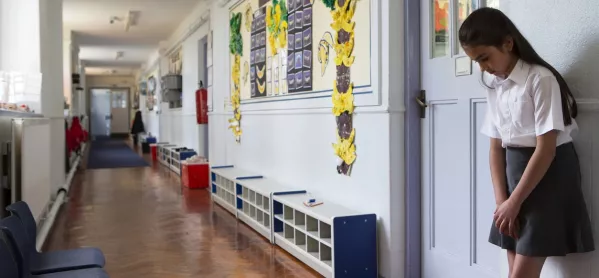Personalised approaches - such as taking time to greet pupils by name at the classroom door - are a better way of improving behaviour than introducing “universal systems”, new research has found.
A new report from the Educational Endowment Foundation (EEF) says that universal behaviour systems are unlikely to work for all pupils. It also finds that there is a lack of evidence for the impact of zero-tolerance, or no-excuses, behaviour policies
Quick read: ‘Ubiquitous’ non-punitive approach to behaviour ‘often ineffective’
Practice: ‘No’ is not enough: why we changed our approach to behaviour
Opinion: Why teachers shouldn’t blame themselves for poor behaviour
The EEF report reviews the best available evidence on behaviour strategies. It concludes that a personal approach such as individual greetings and daily report cards is an effective means of tackling disruptive behaviour.
Notably, it also finds that there is a lack of evidence for the impact of zero-tolerance, or no-excuses, behaviour policies. Typically, such policies will result in pupils automatically receiving detentions for a range of misdemeanours, such as lateness or rude language, without exception.
The EEF said: “There is not strong evidence in favour or against ‘zero tolerance’ - which it is a loose term applied to a range of punitive approaches.
“The evidence for how to improve behaviour in schools suggests that understanding individual pupils, training teachers in classroom management, and having a consistent approach across the school which can be adapted for those with specific needs will support better behaviour.”
Paul Whiteman, general secretary of the NAHT headteachers’ union, agreed. “Tough talk on behaviour may sound good, but it rarely helps,” he said.
The report also states that there is little evidence that today’s pupils behave any worse than those in previous generations. Instead, it finds that most pupils in most lessons are well-behaved.
“Even in schools where behaviour is judged by Ofsted to be inadequate overall, the behaviour in most classrooms is rated more highly,” it stated.
The EEF guidance offers six recommendations for preventing and responding to misbehaviour. Some of these can be used by individual teachers; others require a whole-school focus.
These recommendations are:
- Know and understand your pupils and their influences. If you know whether a pupil’s misbehaviour is down to attention-seeking or boredom, you will be able to respond appropriately.
- Teach learning behaviours alongside managing misbehaviour.
- Use classroom-management strategies to support good classroom behaviour.
- Use simple approaches as part of your regular routine, for example greeting each pupil personally at the door of the classroom.
- Use targeted approaches to meet the needs of individuals in your school.
- Consistency is key.
Sir Kevan Collins, EEF chief executive, said: “Misbehaviour is an issue that has challenged schools for generations. It can have a lasting impact on pupils’ learning and teacher wellbeing.
“Today’s report shows how consistent approaches to behaviour can lead to strong relationships between teachers and students, and form the foundations for learning.”
Responding to these recommendations, Mr Whiteman said: “Good behaviour is important for effective learning to take place. But for many children and young people, their behaviour is a way of communicating that something isn’t right.
“It is vital that we don’t look at bad behaviour in isolation, and take too simplistic an approach in tackling it.”




